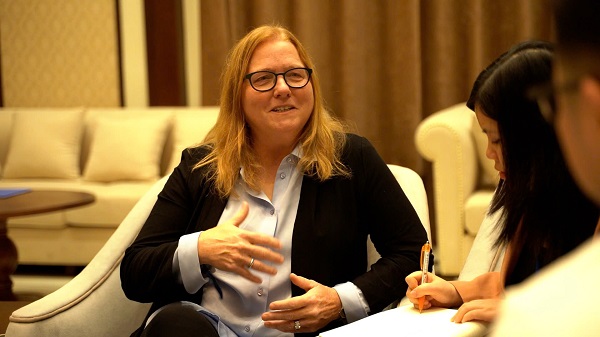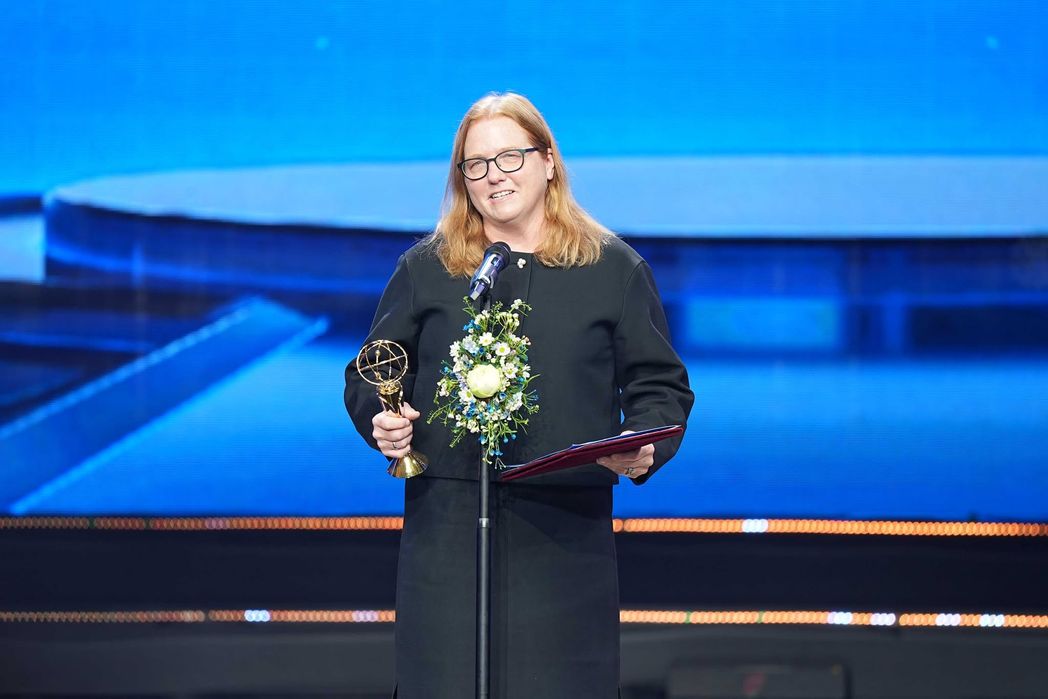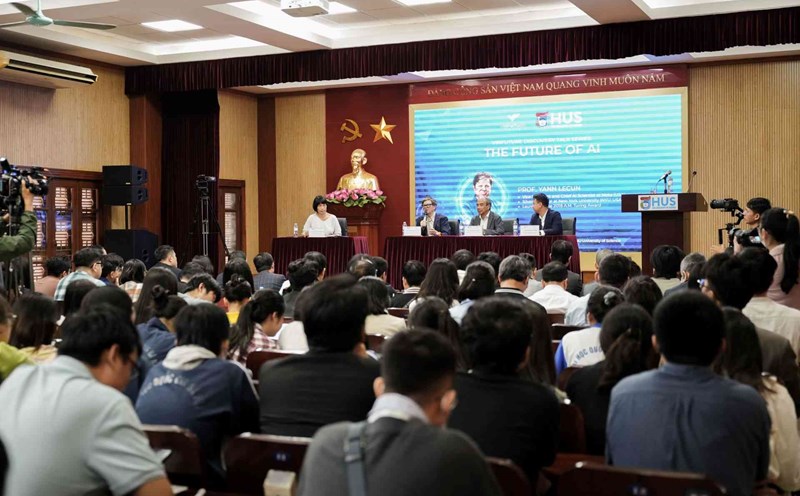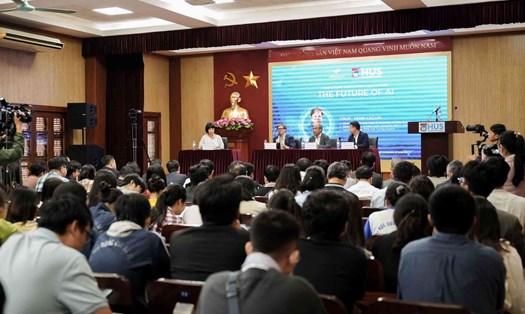At the beginning of the discussion, Professor Kristi Anseth - a scientist from the US who won the Special Prize for female scientists, said she felt very surprised and happy because this was a recognition for women doing scientific research.
Professor Kristi Anseth, at the VinFuture 2024 award ceremony on the evening of December 6, you thanked your husband and children. Could you share more specifically about your family's support that motivated you to strive and develop your scientific research career?
My husband is also a university lecturer, so we have the same teaching and education background, so we support each other a lot and share ideas. As for my 17-year-old daughter, who is in her final year of high school, she is also very interested in scientific research.

There are many problems in the world today, so we need to find ways to solve those problems, so we need the presence of scientists, especially female scientists. The VinFuture Prize has honored female scientists, which is a great motivation for us in the research process.
Being a female scientist will face more difficulties than men, so can you give advice to young female students who are pursuing their passions and research?
We can see that female scientists have many opportunities, but also many challenges. My advice is to find a mentor like yourself, when the mentor is a female scientist who is both successful in scientific research and can take care of the family. Another advice is that we should not be afraid to move forward.
Professor, your research has already saved millions of lives. Do you have any plans to change anything in the future? Do you intend to cooperate with Vietnamese scientists on regenerative muscle tissue?
We have made great strides in the field of biomaterials, such as being able to regenerate tissues or muscles in case of disease or injury. But the complex problems that need to be solved in the brain, kidney transplants, etc. are becoming more and more complex.

On the Vietnamese side, I see that the research environment is developing very well, many research facilities on cells and cardiovascular are being built. Currently, cardiovascular problems in Vietnam are prominent, this development will open up opportunities for cooperation and exchange with modern medicine.
At the same time, Vietnam has a young generation that will promote cooperation to help us solve the problems I just mentioned, not only in Vietnam but globally.
Professor, in daily life, muscle damage and atrophy are inevitable. So what advice can you give to help people protect their health from the beginning, avoiding the need for replacement?
In fact, prevention is also one of the factors that must be considered first, the quality of muscle tissue aging is normal. Therefore, we must exercise regularly. From the age of 30, muscle tissue will begin to age, if exercised, muscle tissue will regenerate. Along with that, diet, reducing stress in life and problems related to infection... if controlled will prevent aging and damage to muscle tissue.
So, are you willing to cooperate, share and research with young Vietnamese scientists to create works that have a great impact on life?
Of course, we have many opportunities to work together, so I also need to have more trips to Vietnam to exchange with students. Especially exchanges between Vietnamese students and American students, from which we can exchange innovative and creative ideas.
Thank you professor!
Professor Kristi Anseth has pioneered the development of biomaterial-based cell culture systems to decode extracellular matrix (ECM) signals that regulate tissue growth, maintenance, and regeneration. She combines molecular and cell biology with engineering and mathematics to create novel tissue replacement biomaterials that can restore, maintain, or improve tissue function.












